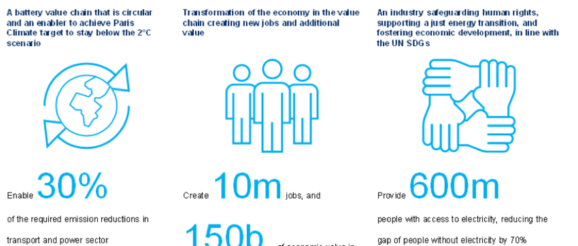Why our future relies on more inclusive and transparent innovation | World Economic Forum

Across the tech sector, the gap between imagination and reality remains too wide. Nobody disputes that new technologies have the potential to make the world a more sustainable, healthy, secure, connected and creative place to live. Indeed, we see tantalizing visions of the future in prototypes, design concepts and even blockbuster movies.
The innovation environment, however, doesn’t scale these new solutions as quickly as it could or should. The same recurring barriers block the path to scalability: low consumer and user awareness, high initial product costs and obstructive regulatory parameters – and we’re still way too restrictive on innovation.
Likewise, we need to create a more supportive environment for the circular economy. Rapidly falling technology costs are creating major opportunities to reduce waste. For example, the Internet of Things (IoT) can keep track of valuable products and materials much more cheaply than in the past, radically increasing opportunities to recover them. Let’s take those opportunities.
Individuals, companies and organizations need to find fresh ways to work together in response to the mounting challenges they face. Yes, it’s the right thing to do, but it’s also good for business. The Fourth Industrial Revolution is shortening innovation cycles, so partnership structures will have to become more agile and fluid than in the past anyway.
There are signs that the tide is turning. Innovation is increasingly occurring at the intersection of different technologies, as restless entrepreneurs seek out opportunities to stretch across many fields of domain knowledge, instead of remaining in more traditional, one-to-one silos. We need to keep blurring the lines if we want a clearer picture to emerge.
We are at a critical time in the 5G timeline, as global pilot schemes and the first commercial deployments are starting to shape a highly competitive landscape, both from a commercial and a geopolitical perspective. I’d like to see the right rules in place to enable 5G to reach its potential in terms of societal benefit and economic growth. Policy-makers in governments and cities need to engage in the process – and be invited to engage – rather than leave development to the whim of market forces. Failure to popularize 5G would represent a dereliction of duty.
The rise of hubs, platforms and systems have released a tsunami of global commercial and consumer value creation. However, much of this growth has been organic or opportunistic and, as such, contained within a too-limited group of companies. In contrast, at a recent meeting of the World Economic Forum’s global community of Technology Pioneers, we enjoyed thought-leadership from both the private and public sector around the emerging trend of inclusive environments that are better focused on explicit consumer outcomes. They showed what can be done and the positive difference that collaboration will make.
We must choose wisely at this fork in the road otherwise technology will fall short of its awesome potential to do good in the world. Consider blockchain: done well, it is a fundamental building block of a transparent value chain, making it easier for stakeholders to stay compliant, to drive efficiencies and to create unique value propositions in increasingly competitive global markets.
With the right regulation, blockchain will benefit the widest number of people in the fairest way. But, if we create fractured systems, with a hyper-focus on efficiency rather than transparency, blockchain risks losing the trust it can create. In the wrong hands, it could be used to exploit trust and mislead and curb freedoms.
